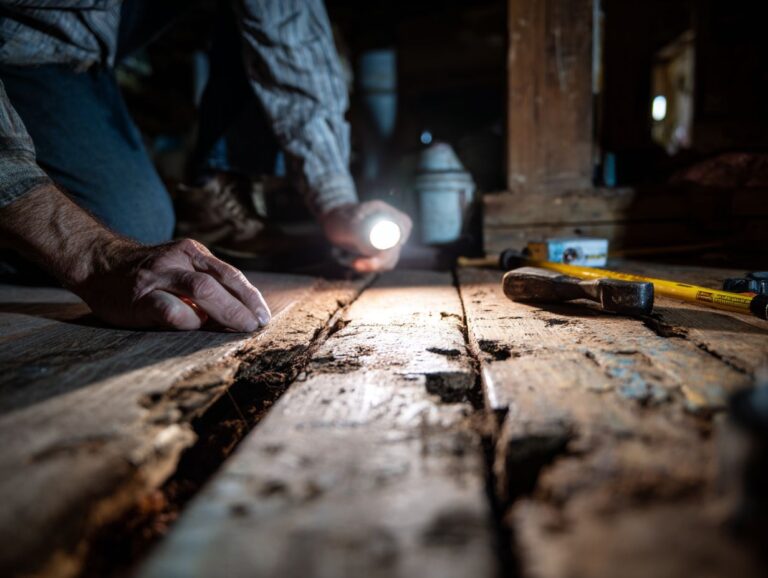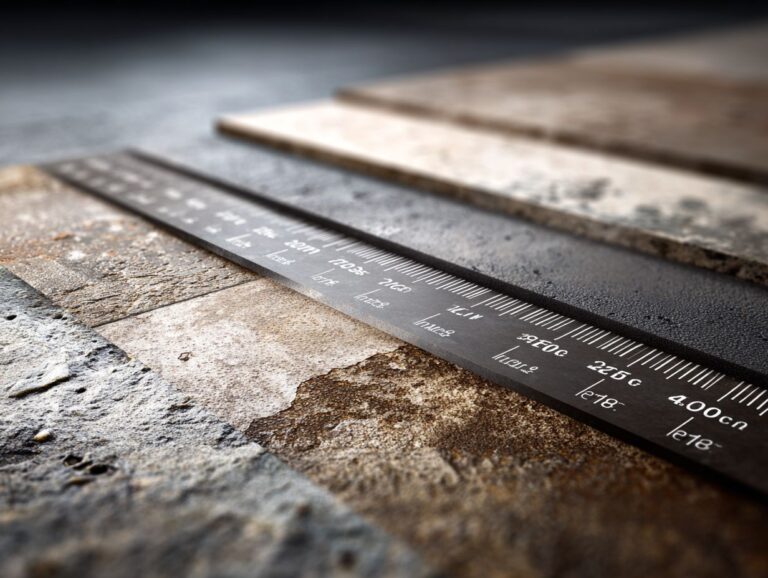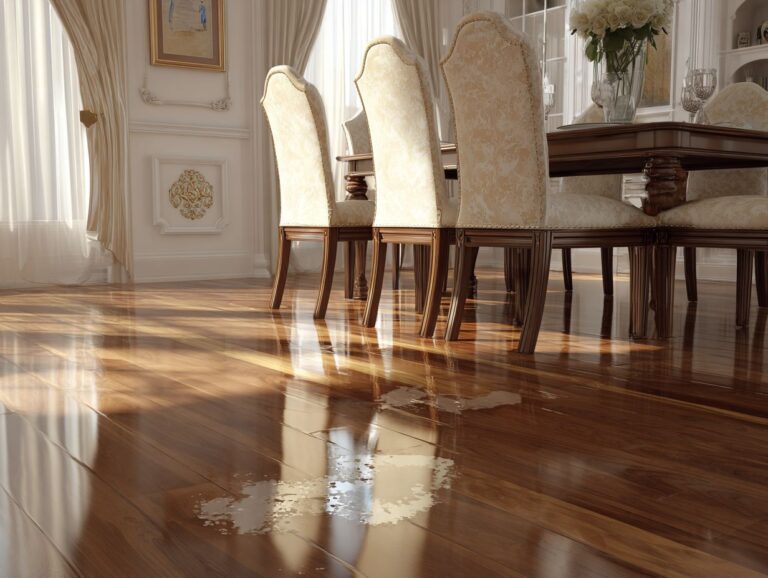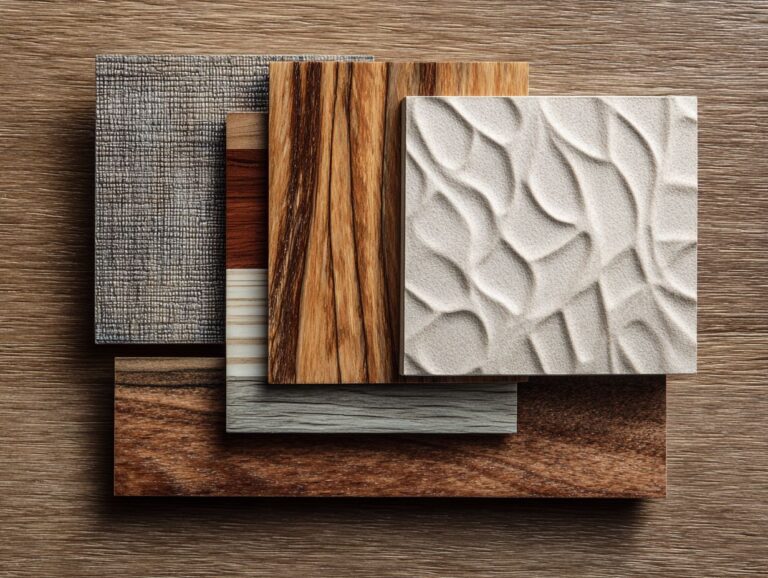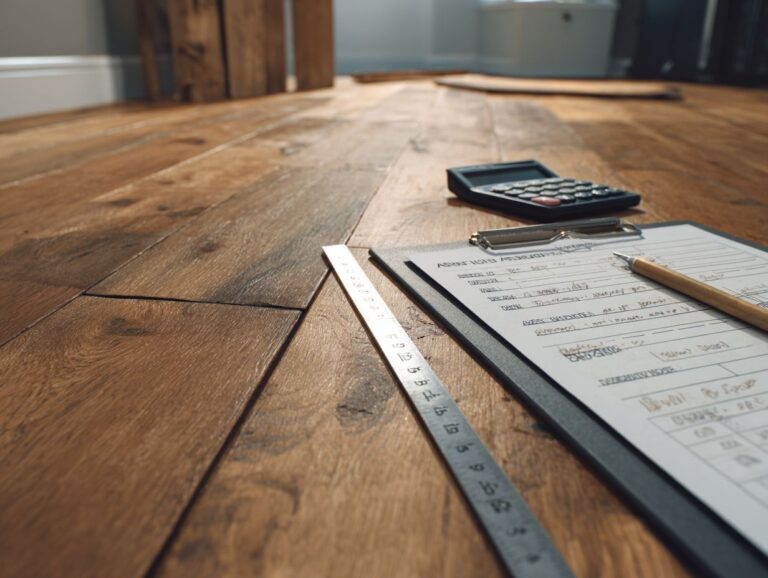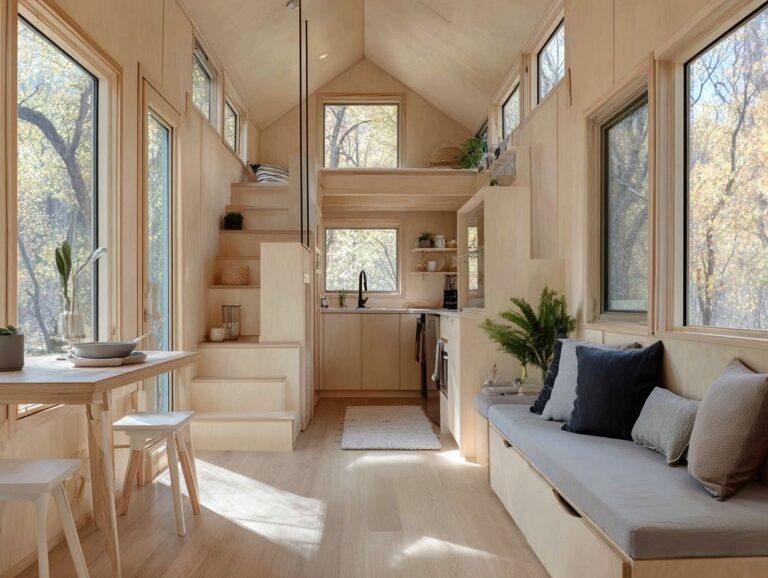Rigid Core Vinyl Flooring – Benefits and Installation
If you want a flooring option that looks good, lasts long, and is easy to put in, rigid core vinyl flooring could be the right choice for you. Made from high-quality polyvinyl chloride, this waterproof flooring option stands up to the demands of busy households. This article discusses the benefits of rigid core vinyl, including its strong durability and easy installation. It will help you determine if it is suitable for your area.
Key Takeaways:
Contents
- Benefits of Rigid Core Vinyl Flooring
- Installation Process of Rigid Core Vinyl Flooring
- Post-Installation Care and Maintenance
- Comparing Rigid Core Vinyl with Other Flooring Options
- Rigid Core Vinyl Flooring Market Projection
- Frequently Asked Questions
- What is Rigid Core Vinyl Flooring and what are its benefits?
- How is Rigid Core Vinyl Flooring installed?
- Do I need special tools to install Rigid Core Vinyl Flooring?
- Is Rigid Core Vinyl Flooring suitable for all areas of the house?
- Is Rigid Core Vinyl Flooring suitable for commercial use?
- Can Rigid Core Vinyl Flooring be installed over radiant heating systems?
What is Rigid Core Vinyl Flooring?
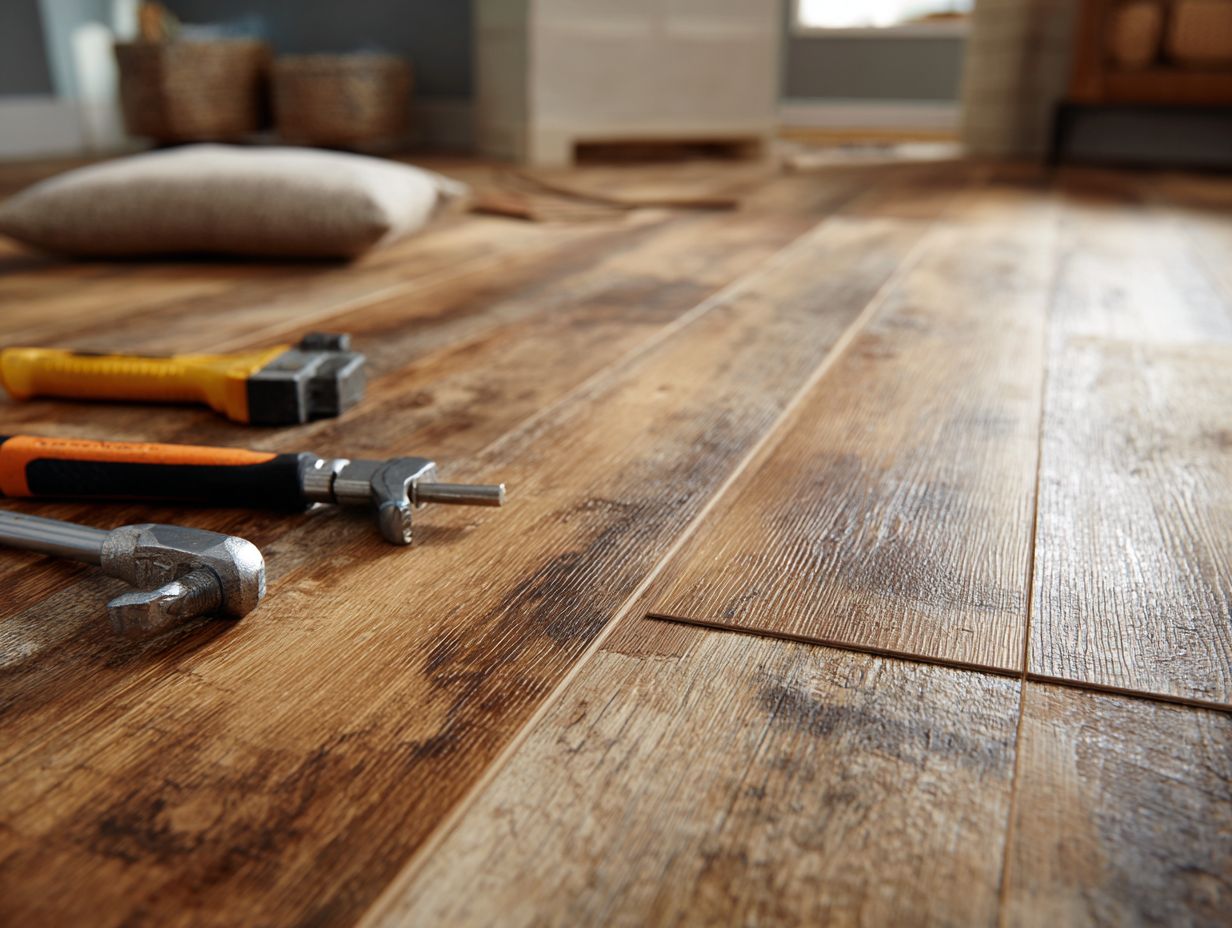
Rigid core vinyl flooring is a type of luxury vinyl that features a strong core layer, typically made from Stone Plastic Composite (SPC) or Wood Plastic Composite (WPC), ensuring maximum durability and flexibility.
This type of flooring is becoming more popular because it handles water well, which makes it a good choice for kitchens and bathrooms.
The ease of installation-a simple click-lock system-lets homeowners tackle projects independently without professional help.
For instance, brands like COREtec and Shaw offer a wide range of designs, allowing you to match your interior style.
Statistics indicate that the rigid core vinyl segment saw a 25% increase in sales last year, highlighting its appeal in home improvement projects.
Differences Between Rigid Core and Other Vinyl Types
Unlike regular vinyl or laminate, rigid core vinyl keeps its shape better and is built for high-traffic areas, making it a better choice for homeowners.
This type of flooring consists of a solid core, typically made from composite materials that resist warping.
For comparison:
- Traditional vinyl is more delicate and doesn’t last as long, so it can easily get scratched in crowded areas.
- Laminate offers a more rigid feel but can swell when exposed to moisture.
Rigid core vinyl excels in kitchens and entryways where moisture and foot traffic are common, providing a long-lasting, aesthetically pleasing solution.
For installation, consider using a click-lock system which simplifies the process and often doesn’t require glue.
Benefits of Rigid Core Vinyl Flooring
Many homeowners and designers prefer rigid core vinyl flooring because it looks good and works well. This preference can be further understood through our comparison of sheet vinyl, vinyl plank, and vinyl tile, which highlights the unique benefits each type offers.
Durability and Longevity
Rigid core vinyl flooring has a tough surface layer that handles heavy foot traffic well, making it a good choice for homes and businesses.
The wear layer usually varies from 12 mil to 20 mil. Thicker layers offer increased durability.
For example, a 20 mil wear layer is ideal for high-traffic commercial spaces like retail stores, while a 12 mil layer works well in busy home areas, such as kitchens or entryways.
The core materials-composed of high-density PVC-offer stability and resistance to warping. A real-life instance is a gym installed with rigid core vinyl that endures heavy weights and foot traffic, maintaining its appearance and functionality even after years of use.
Water Resistance
Rigid core vinyl is waterproof, so it works well in places with frequent moisture such as kitchens and bathrooms.
The water-resistant properties stem from its layered construction, which includes a 100% waterproof core. This design helps shield against spills and humidity, preventing mold and mildew growth.
In fact, tests show that rigid core vinyl can withstand water exposure for up to 72 hours without harm, making it a good option for families with young children or pets.
For added protection, consider sealing the seams with a waterproof adhesive during installation, enhancing durability even further.
Comfort Underfoot
The sturdy construction of rigid core vinyl flooring provides a lasting surface and a cozy feel, making it nice to walk on for a long time.
This flooring type boasts impressive sound absorption capabilities due to its dense core structure, which minimizes noise pollution. Users often report a noticeable decrease in echo and footstep sounds, enhancing a room’s tranquility.
One customer highlighted how their children can play indoors without disturbing the entire household. To improve comfort and reduce noise, use rigid core vinyl together with acoustic underlayment to make sound dampening better.
This combination increases comfort and makes the living space quieter, which is ideal for families.
Easy Maintenance
One of the standout features of rigid core vinyl flooring is its low maintenance needs, requiring only regular sweeping and occasional mopping to keep it looking pristine.
To increase the lifespan of your flooring, try using some particular cleaning methods. Regularly use a dry microfiber mop to trap dust and debris effectively.
For deeper cleaning, a solution of warm water and a few drops of dish soap can work wonders-just avoid harsh chemicals that may damage the finish. Check regularly for scratches and use a vinyl repair kit to fix small issues quickly.
This routine keeps your floor looking good and lasts longer.
Variety of Styles and Designs
Rigid core vinyl flooring comes in an extensive range of colors and styles, allowing homeowners to easily find a design that complements their personal style and home dcor.
Among the popular design trends, textured finishes mimic the look of natural materials, such as wood and stone, bringing a touch of authenticity to interiors.
For instance, a distressed wood look can create a rustic feel, while sleek, polished designs align with modern aesthetics.
The detailed designs in high-definition make vinyl resemble real hardwood or tile closely, making it difficult to distinguish between them.
When picking colors, neutral tones are classic and can match well with many accent colors. On the other hand, bright colors can stand out and add excitement to a room.
Cost-Effectiveness
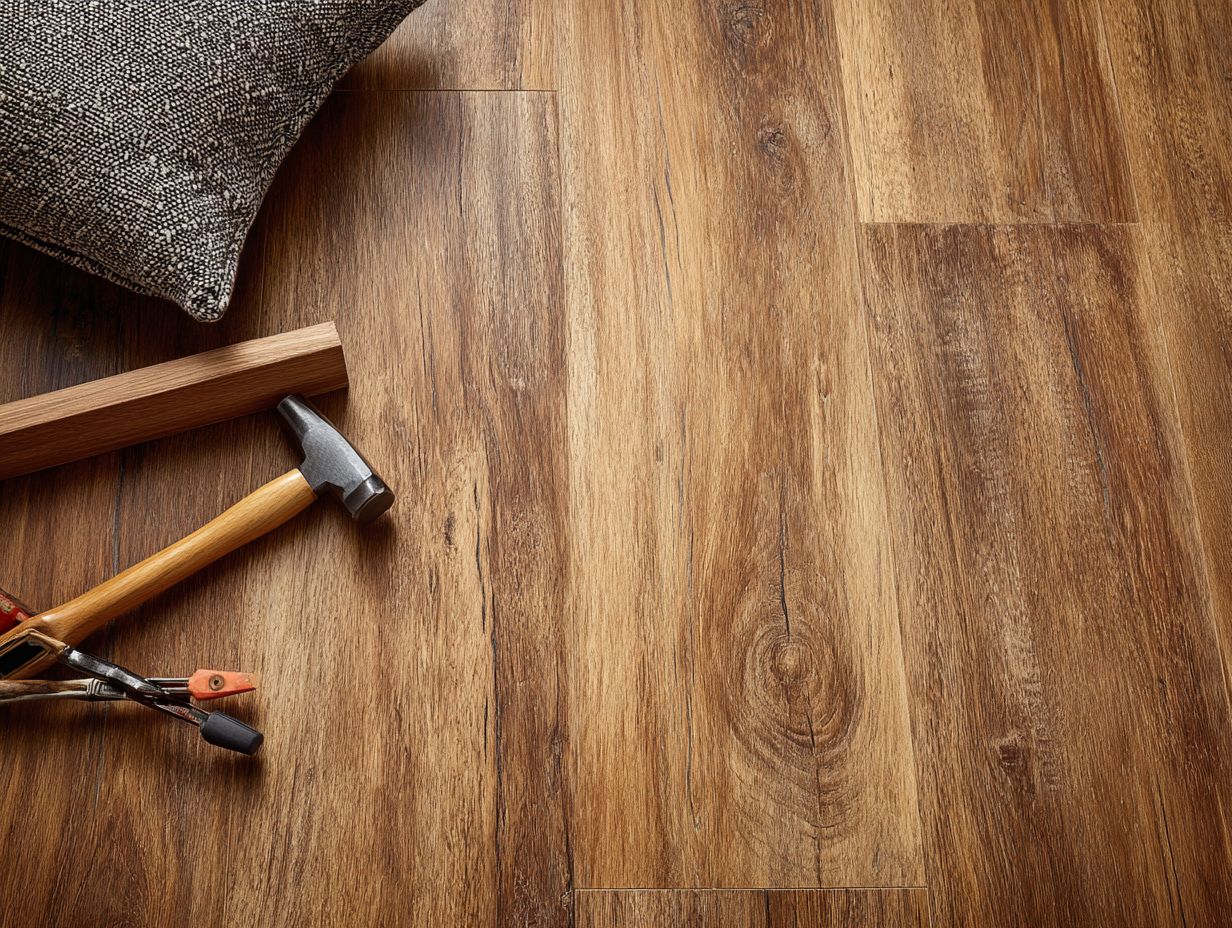
Rigid core vinyl flooring offers a cost-effective option without sacrificing quality, appealing to homeowners who want to renovate on a budget.
Typically priced between $2 to $5 per square foot, rigid core vinyl is significantly cheaper than hardwood, which can range from $6 to $12 per square foot.
Its installation costs are lower due to its click-lock design, often allowing for DIY projects.
Maintenance is another advantage; unlike hardwood that requires refinishing and special cleaning products, rigid core vinyl only needs regular sweeping and occasional mopping.
These savings on setup and maintenance make it a wise financial decision for renovation projects.
Installation Process of Rigid Core Vinyl Flooring
Putting in rigid core vinyl flooring is easy, which allows those who like DIY projects to achieve a look that appears professionally done. For a deeper understanding of how this option compares to others, check out this related insight: Sheet Vinyl vs Vinyl Plank vs Vinyl Tile Comparison.
Preparation of the Subfloor
Preparing the subfloor correctly is important for installing rigid core vinyl. This makes sure the flooring sticks well to a smooth and clean surface.
Start by thoroughly cleaning the subfloor, removing dust and debris with a vacuum and a damp mop. Next, level any uneven areas using a self-leveling compound, which typically takes 1-2 days to dry.
It’s important to check moisture levels with a meter; the readings should be under 12% to avoid mold and damage. Common mistakes include neglecting moisture checks and improperly mixing the leveling compound, which can lead to further issues down the line.
Use tools such as a leveling laser for accuracy in the leveling process.
Tools Required for Installation
To achieve a flawless installation of rigid core vinyl flooring, you’ll need a specific set of tools including a utility knife, straight edge, and a tapping block.
Consider using a rubber mallet to gently tap the planks into place without causing damage. A flooring scraper is essential for removing any old flooring or debris from the subfloor, ensuring a smooth and even surface.
Budget around $100-$150 for purchasing these tools, which are widely available at home improvement stores like Home Depot or Lowe’s. Always remember to wear knee pads for comfort during the installation process, as it requires extended periods of kneeling.
Step-by-Step Installation Guide
Use this detailed guide to correctly install your rigid core vinyl flooring for a perfect fit and finish.
-
Start by preparing the subfloor: it should be clean, dry, and level, which typically takes about 1-2 hours.
-
Next, acclimate the flooring planks in the installation area for at least 48 hours to prevent expansion post-installation.
-
To cut accurately, use a utility knife and a ruler. Begin laying the planks from one corner, using spacers to maintain gaps for expansion.
-
Give the installed flooring a thorough check and clean, which should take an additional hour.
-
With careful planning and installation, your new flooring will improve any room.
Common Installation Mistakes to Avoid
Avoiding common installation mistakes can save time and money, ensuring your rigid core vinyl flooring lasts for years to come.
One frequent mistake is neglecting to acclimate the flooring before installation. Allow your vinyl planks to adjust to the room temperature for at least 48 hours.
Another common mistake is not checking if the floor is even; use a self-leveling compound to fix any uneven spots. Not leaving an expansion gap around the edges can lead to warping. A gap of 1/8 inch is recommended.
Improper adhesive application can cause lifting; always follow the manufacturer’s guidelines for the best results.
Post-Installation Care and Maintenance
To keep your rigid core vinyl flooring looking good and working well over time, it’s important to take care of it.
Cleaning Tips
Cleaning regularly is important to maintain the appearance of your rigid core vinyl flooring. Just follow a few simple steps to keep it looking fresh.
- Start by sweeping or vacuuming the floor weekly to remove dirt and debris.
- For deeper cleaning, use a damp mop with a pH-neutral vinyl floor cleaner, ensuring you don’t saturate the surface.
- Address specific stains, like food spills, immediately with a gentle cleaning solution, such as warm soapy water or a vinegar mix.
- To maintain the appearance of your vinyl floor, apply a vinyl floor polish every few months.
Regularly doing these tasks will keep your flooring looking lively and make it last much longer.
Preventing Damage
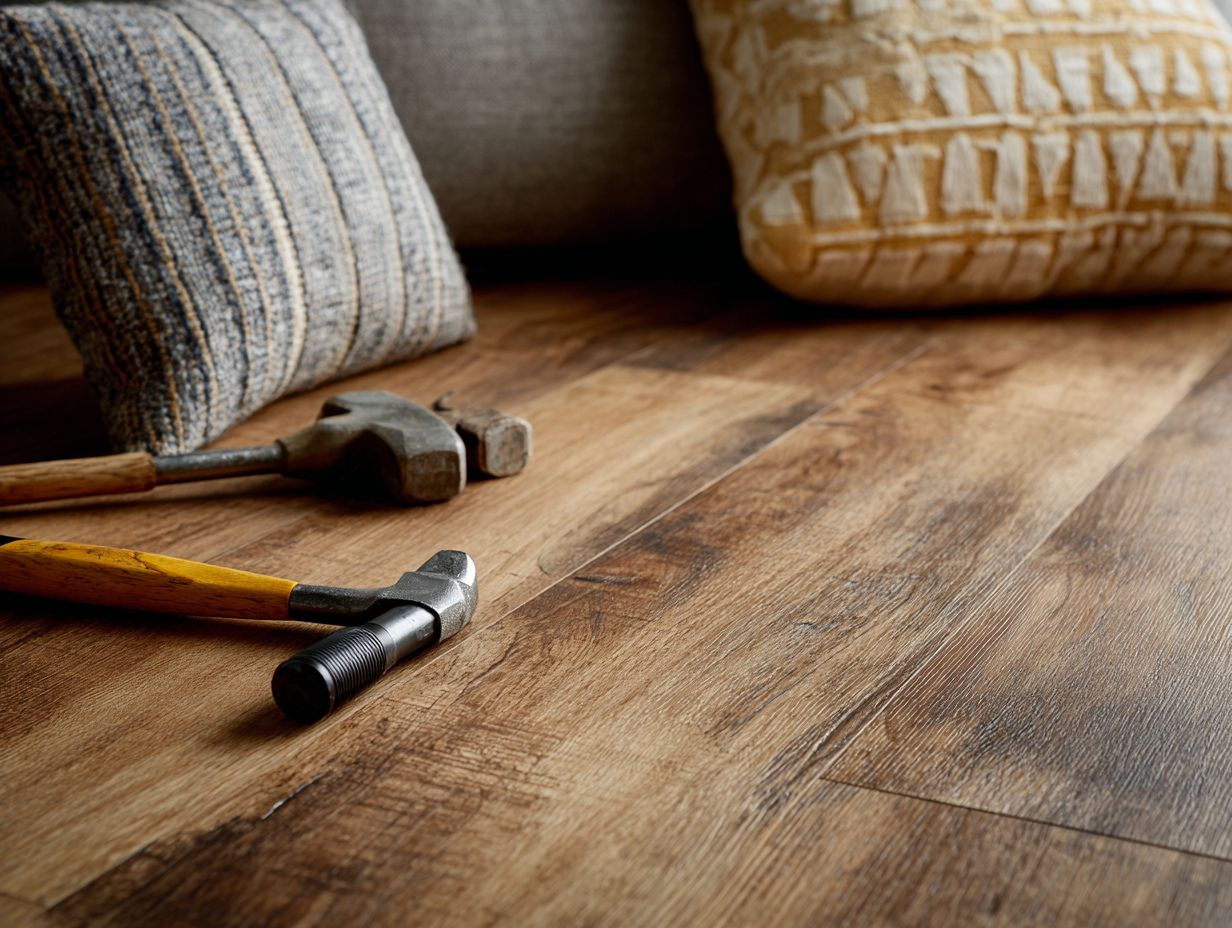
Preventing damage to your rigid core vinyl flooring involves simple steps that protect against scratches, moisture, and heavy impacts.
- Start by using furniture pads under chairs and tables to prevent scratches from moving furniture.
- Lay down mats at entry points to catch dirt and moisture, which can wear down the floor’s surface.
- Incorporating moisture barriers, especially in high-humidity areas like kitchens or bathrooms, can effectively prevent water damage.
Statistics show that proper protective measures can extend the life of vinyl flooring by up to 20%, ensuring your investment remains in excellent condition for years.
Comparing Rigid Core Vinyl with Other Flooring Options
Knowing how stiff core vinyl compares to other types of flooring is important for choosing one that fits what you want and need. This understanding becomes clearer with a thorough comparison of sheet vinyl, vinyl plank, and vinyl tile, which highlights their unique characteristics and benefits.
Rigid Core Vinyl vs. Laminate Flooring
When comparing rigid core vinyl to laminate flooring, the advantages in durability and moisture resistance set rigid core apart for busy families and high-traffic areas.
Rigid core vinyl is strong and can easily withstand heavy use, which makes it ideal for homes with children or animals.
Unlike laminate, which can swell when exposed to moisture, rigid core vinyl remains unaffected by spills. For example, brands like CoreTec and Shaw offer planks that are both water-resistant and comfortable underfoot, often featuring a cork backing for added sound dampening.
Installation is typically simpler with rigid core, as it can be installed over most existing floors without adhesives, reducing both time and labor costs.
Rigid Core Vinyl vs. Hardwood Flooring
Hardwood floors have a classic look, but rigid core vinyl is a cheaper choice that handles moisture better.
Installation of rigid core vinyl is generally simpler than hardwood, often requiring no glue or nails. Its click-lock system lets you put it together fast, which makes it a great option for those who enjoy doing it themselves.
Maintenance is hassle-free; regular sweeping and occasional mopping suffice to keep it looking new. Unlike hardwood, which may warp in humid environments, rigid core vinyl thrives in moisture-prone areas like kitchens and bathrooms.
This durability, paired with an extensive range of designs that mimic wood and stone, makes it a practical flooring solution for various settings.
Final Thoughts on Rigid Core Vinyl Flooring
As home remodeling trends continue to evolve, rigid core vinyl flooring stands out as a practical choice that caters to diverse styles and functional requirements.
Thanks to its durable structure, rigid core vinyl resists moisture and damage, making it suitable for high-traffic areas such as kitchens and living rooms.
Brands such as Shaw and COREtec offer extensive design options, allowing homeowners to match their flooring to any aesthetic, whether modern or rustic.
Installation is easy because most products have a click-lock system, allowing DIY enthusiasts to finish the project without difficulty.
Use a good underlayment for more comfort and to reduce noise. Rigid core vinyl is a reliable and long-lasting choice for your upcoming project.
Where to Purchase Rigid Core Vinyl Flooring
You can find rigid core vinyl flooring at various retailers, including specialty flooring stores and online platforms, offering competitive prices and diverse selections.
Popular online retailers include Home Depot, where prices range from $2 to $5 per square foot, and Lowe’s, which often runs promotions.
Websites like Wayfair offer unique styles, typically priced between $3 and $7 per square foot.
For physical options, visit local flooring specialists for expert advice and potential customization, with prices similar to larger chains.
To check the quality, look at customer reviews on sites like Yelp or Google Reviews before buying. This approach guarantees you receive a product that meets both style and durability needs.
Future Trends in Vinyl Flooring
Upcoming improvements in vinyl flooring will make it more durable, offer more design choices, and be more environmentally friendly, which will help it gain a stronger hold in the market.
Emerging trends in vinyl flooring are showcasing eco-friendly materials like recycled content and biodegradable options, appealing to environmentally conscious consumers.
Better printing methods create realistic textures that look like real wood and stone.
Innovative installation methods, such as click-lock planks, make it easier for homeowners to undertake DIY projects, potentially reducing installation costs.
With the global luxury vinyl tile market projected to grow substantially, these advancements are meeting rising demands for stylish yet sustainable flooring solutions.
Rigid Core Vinyl Flooring Market Projection
Rigid Core Vinyl Flooring Market Projection
Market Growth and Forecast: Market Size
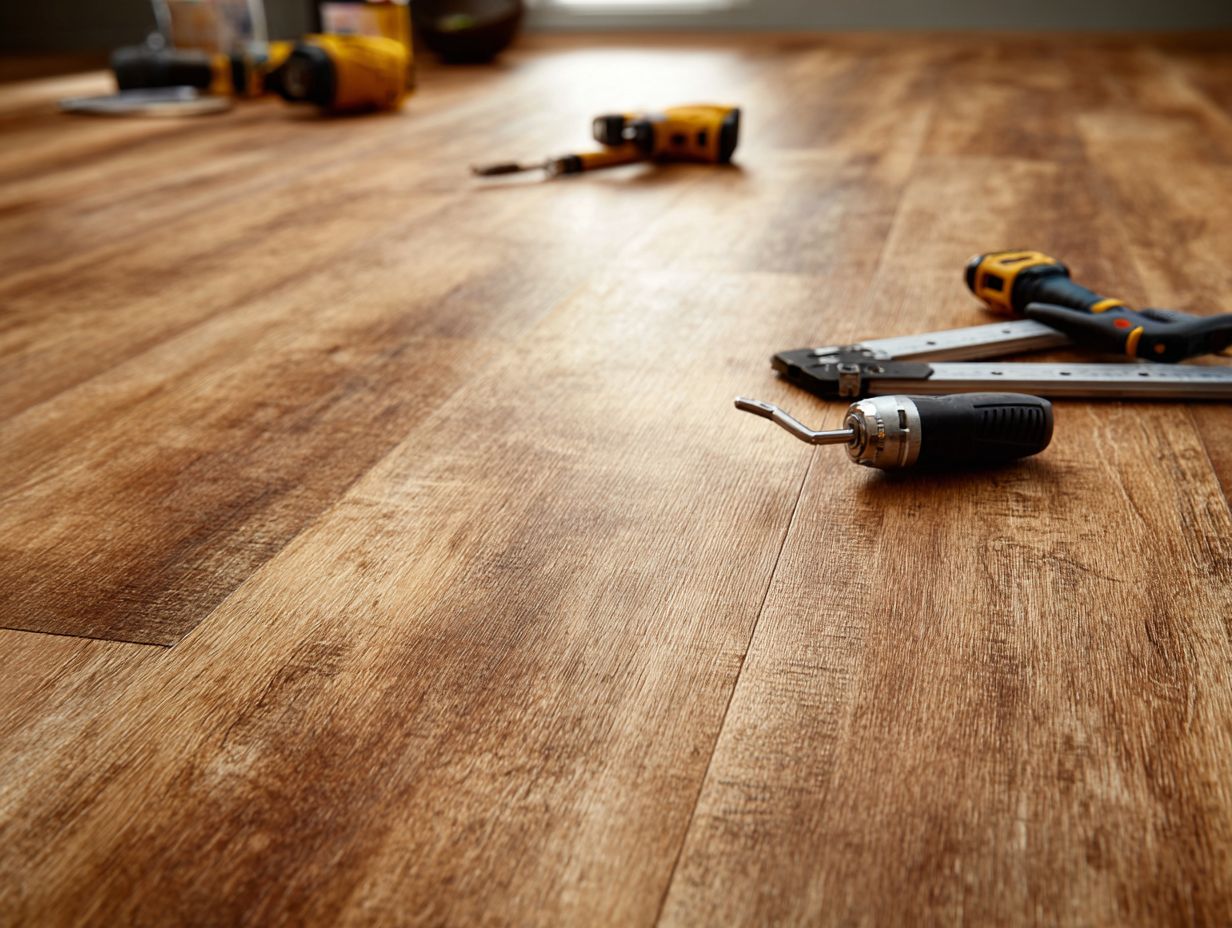
The Rigid Core Vinyl Flooring Market Projection provides a snapshot of significant growth in the flooring industry, marked by steady annual increases in market size. In 2023, the market is valued at $10 billion, highlighting its substantial presence in the flooring sector due to its durability, aesthetic appeal, and cost-effectiveness compared to traditional flooring options.
Looking ahead to 2024, the market is projected to reach $11 billion, reflecting a 10% increase from the previous year. The rising demand for rigid core vinyl flooring is due to improvements in production methods, better product designs, and more consumers becoming aware of its advantages. These benefits include its resistance to water, ease of installation, and the availability of diverse designs and finishes.
By 2032, the market is expected to grow to $18.4 billion, indicating a significant expansion over the forecast period. This projected growth can be attributed to multiple factors, including the rising demand for residential and commercial building renovations, where vinyl flooring is favored for its modern look and practicality. As consumers care more about sustainability, the industry is paying more attention to eco-friendly production methods and recyclable materials, making it more attractive.
The predicted increase in the rigid core vinyl flooring market indicates strong demand and a growing number of buyers. Market participants are ready to benefit from this trend by investing in new products and broadening distribution methods to satisfy various consumer needs and tastes.
Frequently Asked Questions
What is Rigid Core Vinyl Flooring and what are its benefits?
Rigid Core Vinyl Flooring is a kind of flooring that has several layers of vinyl, which makes it stronger and more steady. Its benefits include high resistance to scratches, moisture, and stains, as well as easy maintenance and installation.
How is Rigid Core Vinyl Flooring installed?
Rigid Core Vinyl Flooring is typically installed as a floating floor, meaning it is not attached to the subfloor. The planks or tiles are interlocked and can be installed over most existing floors, as long as they are clean, dry, and level.
Do I need special tools to install Rigid Core Vinyl Flooring?
No, you do not need special tools to install Rigid Core Vinyl Flooring. It is suggested to use a utility knife, measuring tape, and rubber mallet to make the installation easier.
Is Rigid Core Vinyl Flooring suitable for all areas of the house?
Yes, Rigid Core Vinyl Flooring is suitable for all areas of the house, including high traffic areas like the kitchen and bathroom. Its high resistance to moisture and stains make it a great option for these spaces.
Is Rigid Core Vinyl Flooring suitable for commercial use?
Yes, Rigid Core Vinyl Flooring is suitable for commercial use in spaces with moderate foot traffic, such as offices and retail stores. Its durability and easy maintenance make it a practical choice for these settings.
Can Rigid Core Vinyl Flooring be installed over radiant heating systems?
Yes, Rigid Core Vinyl Flooring can be installed over radiant heating systems. However, make sure to follow the manufacturer’s instructions and keep the subfloor temperature within the advised limit.
